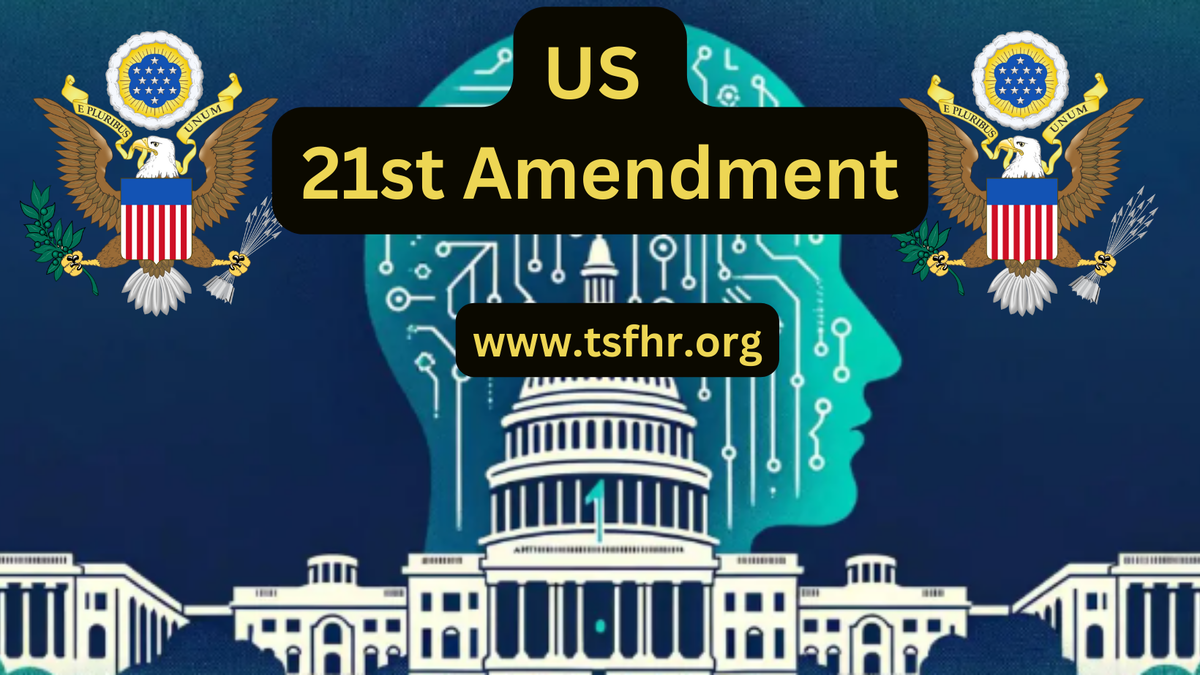What is the 21st Amendment in Simple Terms: Learn about the 21st Amendment in simple terms. This article explains its importance, the end of alcohol prohibition, and how it affects U.S. law in 2024.
Introduction:
The 21st Amendment to the U.S. Constitution is a significant law that ended the Prohibition era, allowing the legal sale and consumption of alcohol. Ratified in 1933, it reversed the 18th Amendment, which had banned alcohol in the United States. In this article, we will explain what the 21st Amendment means in simple terms, why it was created, and why it remains important today.
What is the 21st Amendment in Simple Terms:
What is the 21st Amendment in Simple Terms?
The 21st Amendment repealed the 18th Amendment, which had prohibited the manufacturing, sale, and transportation of alcohol. Essentially, it allowed alcohol to be legal again, ending the 13-year period of Prohibition in the United States. This amendment gave states the authority to regulate alcohol laws within their own borders.
When Was the 21st Amendment Created?
- The 21st Amendment was ratified on December 5, 1933, officially ending the nationwide ban on alcohol.
- It was the only amendment that repealed another constitutional amendment, marking a unique moment in U.S. legal history.
Why Was the 21st Amendment Created?
- The 21st Amendment was created to end the failures and problems caused by Prohibition.
- Prohibition led to a rise in illegal activities, such as bootlegging and organized crime, and was difficult to enforce.
- Many Americans wanted to end the ban, and the 21st Amendment allowed alcohol to be legal again, bringing economic benefits and restoring personal freedoms.
Why is the 21st Amendment Important?
The 21st Amendment is important because it marked the end of Prohibition, which had caused many social, economic, and legal challenges. By repealing the 18th Amendment, it restored personal rights and allowed the government to regulate alcohol consumption, which led to economic growth through the legal alcohol industry.
21st Amendment Rights
The 21st Amendment does not outline specific rights in the same way as other amendments. However, it gave states the power to regulate alcohol laws within their borders, which means that each state has different rules regarding the legal drinking age, the sale of alcohol, and alcohol-related activities.
21st Amendment Examples
- End of Prohibition: The 21st Amendment allowed people to legally purchase and consume alcohol, ending a national ban that had lasted from 1920 to 1933.
- State Control: The amendment gave states control over alcohol laws, allowing for different rules across the country, such as varying drinking ages and alcohol sales restrictions.
Examples of the 21st Amendment Being Violated
- Illegal Alcohol Distribution: Even though alcohol became legal after the 21st Amendment, bootlegging continued for a time in some areas, where alcohol was still sold illegally.
- Underage Drinking: Despite the legal drinking age being established in many states, violations of the 21st Amendment occur when people under the legal age purchase or consume alcohol illegally.
FAQs Section:
Q1: What is the 21st Amendment in Simple Terms for Kids?
The 21st Amendment is a law that made alcohol legal again in the United States. It stopped the rule that said no one could make, sell, or drink alcohol. It also gave each state the power to decide its own alcohol rules.
Q2: What Does the 21st Amendment Say in Simple Words?
The 21st Amendment says that alcohol is legal again and that states can make their own rules about it. It ended the national ban on alcohol, which had been in place for 13 years.
Q3: What is the 21st Amendment of the Bill of Rights in Simple Terms?
The 21st Amendment is not part of the Bill of Rights but is an important part of U.S. law. It reversed the 18th Amendment, which banned alcohol, and allowed it to be legal again.
Q4: What Are Some 21st Amendment Examples?
Legal Alcohol: After the 21st Amendment, alcohol could be legally bought and sold.
State Control: Some states created their own rules, such as setting a drinking age and determining where and when alcohol could be sold.
Q5: What Does the 21st Amendment Mean in Kid Terms?
The 21st Amendment means that alcohol became legal again after being banned for a long time. Each state can decide how it wants to control alcohol in its area.
Conclusion:
The 21st Amendment was a pivotal moment in U.S. history, ending the 13-year era of Prohibition and allowing alcohol to be legal again. It gave states control over alcohol laws and helped regulate its use. Understanding this amendment is crucial because it shows how the government can change laws to adapt to the needs and demands of society.
Other Amendments Articles
